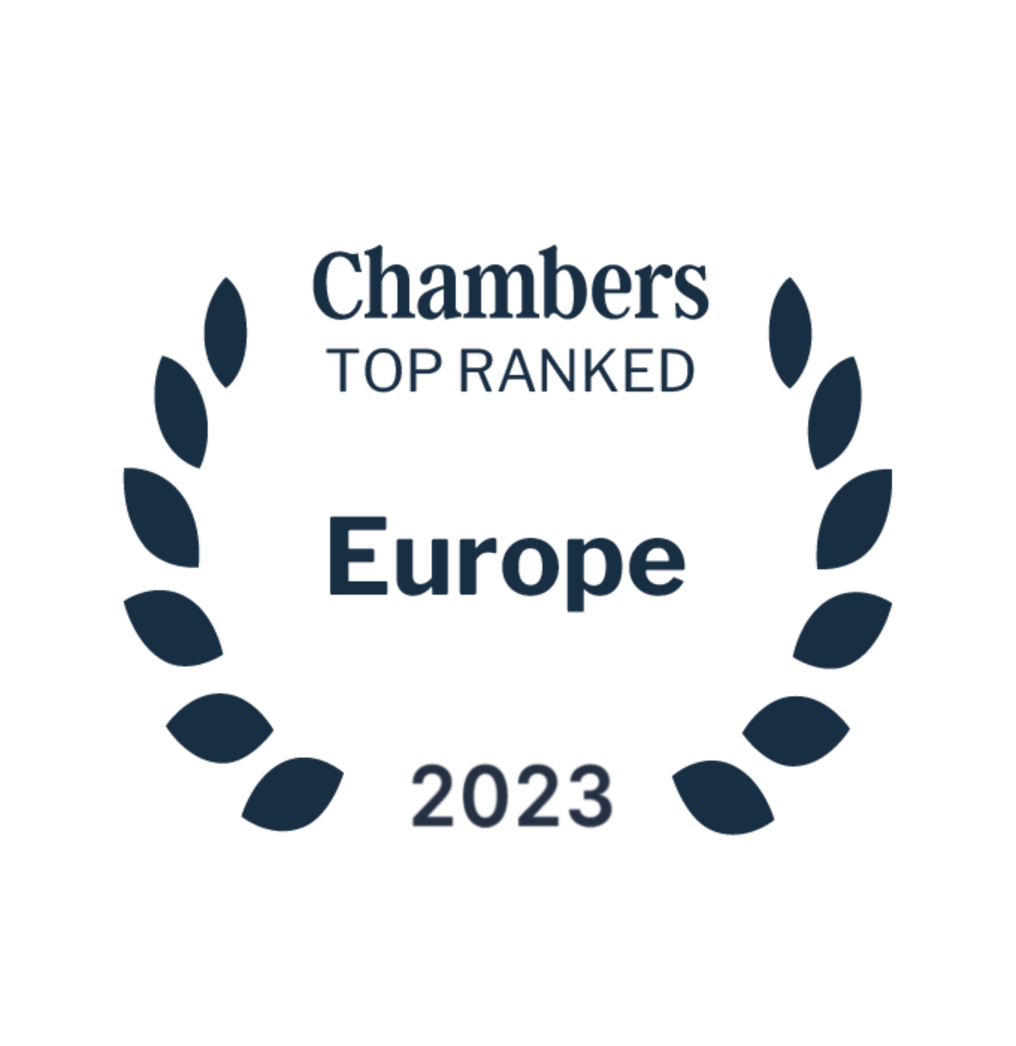Comparative tax approach of major European Leagues
INTRODUCTION
As long as the sports industry is becoming more popular and more relevant for the economy of the countries and their gross domestic product, there is a new strategy of the different states to introduce attractive tax measures in order to promote the arrival of foreign players. In this sense, it may be observed a tax competence between EU major leagues.
This approach is generalized, some countries as United Kingdom has historically venture strongly into this affiliation between tax incentives and expatriation. Others, such as Italy, France or Portugal are working hard during the last years introducing different tax measures with high implications from tax perspective.
However, and as we will see later, this generalized approach is not followed by all major leagues, as countries like Spain have decided to eradicate its main tax advantage (“impatriate tax regime”).
In this article we would describe shortly the main measures of the different countries and how it operates with different tax issues such as the residence, image rights or agency fees1.
- SPANISH TAX REGIME
- Impatriate tax regimeSome years ago, Spain had a favorable tax regime for foreign players that came to Spain to develop his activity. The “inpatriates” Tax Regime, so-called also “Beckham Law” (since David Beckham was one of the first players who could enjoy this regime), allowed the individuals that came to Spain because of a labor contract to be taxed as non-resident, which meant:
- Being taxed only in their Spanish-source income. Tax residents in Spain were and are taxed on their worldwide income.
- Lower income tax rates on their salaries from the Spanish Club. Non-residents paid taxes at a rate around 24% (depending on the tax year). However, tax residents in Spain paid taxes at a rate around 45%.
- The regime could be applied the first year of the Spanish tax residence and the subsequent five years.
- The player should not have been tax resident in Spain in any of the 10 precedent tax periods to his transfer of residence to Spain.
- The displacement to Spain should derive from a labor contract with a Spanish employer or the displacement to Spain should have been ordered by the foreign employer.
- The works should be carried out in Spain. This requirement would be fulfilled if the player perceives no more than 15% of the total labor income from abroad.
- Image rightsHistorically and in some cases, the image rights have been used to pay the players with a lower tax cost avoiding its qualification as an employment income. Afterwards and to avoid such scheme, the Law 13/19962 introduced a limit in the payments from clubs to companies. In this sense, such Law established that the club would not pay more than 15% of the total remuneration paid to the player due to the image rights. In case such limit is broken, the entire amount paid by the club to the player or company would be considered as an employment income and consequently subject to taxation at the highest tax rate.Nowadays, and even though such limit is respected, those companies are under enquiries by the Spanish Tax Authorities (STA). STA are considering that:
- In many cases those companies are instruments to avoid taxation and allocate income into a corporate level (lower than personal level).
- Those companies do not have considerable economic activity.
- Due to the transfer pricing rules, the entity shall pay to the player the market value of the assignment of the image rights. In this sense, the market value would be constituted by the money paid by third parties (i.e., club or sponsorship agreements) to the company and deducting only the expenses linked with the exploitation of the image rights.
- Agency feesIt is well-known in the sports sector that, when the players are part of a transaction or want to renew his contract with his club, they, in most of the cases, are represented by an agent in the negotiation with the club. This agent, with his client acquiesce, agrees with the club the amounts to be paid to the player and, for his intervention, perceives a certain fee. Traditionally, these fees were paid by the club directly to the agent.In recent years, the STA have considered that, as the player is the client of the agent (not the club), it is him the one entitled to proceed with the payment. Therefore, if it is the club the one that pays the agreed fee, the club must treat it as a benefit in kind and, therefore, practice the corresponding withholding. Practically, this increases the cost of the agency fees to be paid.The STA follows the more burdensome interpretation for the players, because if the agency fees are considered as player´s salary, and therefore, taxable in Spain, they should be considered as well as a deductible expense of the salaries perceived by the player (because the funds end in the agent´s bank account and these fees are directly and strictly related to the player´s salaries).Nevertheless, STA does not consider the agency fees as a deductible expense for the player. Spanish tax regulations only allow certain expenses and certain amounts as deductible expenses of salaries income, and agency fees are not included in the list.
- Impatriate tax regimeSome years ago, Spain had a favorable tax regime for foreign players that came to Spain to develop his activity. The “inpatriates” Tax Regime, so-called also “Beckham Law” (since David Beckham was one of the first players who could enjoy this regime), allowed the individuals that came to Spain because of a labor contract to be taxed as non-resident, which meant:
- COMPETITIVE TAX REGIMES
- United KingdomThe remittance basis allows to the non-domiciled (non-dom) to be taxed only on the UK income and capital gains. The foreign income would be taxable in UK (highest tax rate 45%) if it is remitted there (remittance basis principle).In this sense, the remittance basis is free for the six years of residency. After that, the taxpayer would be subject to an annual charge of £30,000 (if the taxpayer is resident for 7 of the last 9 years), £60,000 (in case of residence of 12 of the last 14) and £90,000 (if residence in 17 of the last 20).Regarding the image rights, HMRC published a guide about the tax treatment of the image rights. In this sense, HMRC indicates that:
- Image rights companies may license the use of an individual’s image to commercial partners, including the individual’s employer (if they have one), in return for image rights payments.
- Where payments are made to an image rights company resident in the UK, the company will pay UK Corporation Tax on its profits.
- Where the individual is a director or shareholder of that company, they may receive a financial reward, such as salary or dividends, in the same way as any other company director or shareholder. This income is subject to tax in the normal way.
- FranceFrance has an attractive special regime that sportspeople may benefit from.Ordinary French tax residents are taxed in France at a marginal rate around 45%. Also, ca. 20-23% (capped to 10% for gross monthly salaries above 13 thousand euro) of the gross income is payable as employee social security taxes. Employer social security taxes (which are not reflected in the employment agreement) are computed on the gross income at rate of ca. 30% (capped to ca. 24% for gross monthly salaries above 13 thousand euro).Nevertheless, the inpatriates tax regime states the following benefits:
- Inpatriation premium received by the employee in France is fully exempted for income tax purposes. This inpatriation premium should meet the following requirements:
- Employees sent on assignment to France by their foreign employer or recruited directly overseas by French companies to occupy a position in France;
- The individuals must be French non-resident for tax purposes at the date of recruitment and for the past five years.
- The exemption that may be applicable are the following:
- Exemption applicable to the inpatriation bonus, covering the costs incurred with respect to the settlement in France, mostly assessed on a flat-rate basis in the employment agreement (option for a 30% of the gross income lump sum available to individuals directly recruited from abroad);
- Exemption applicable to the fraction of salary corresponding to the activity performed for the French club abroad;
- Exemption applicable to 50% of foreign passive income (dividends, interest, royalties and gains) derived by the player.
- The compensation to be received by the individual, excluding the inpatriation premium, should be equal or higher to the compensation perceived by other employees in equivalent positions to the same employer.
- The inpatriation premium (i.e. actual costs or up to 30% of the net remuneration for individuals directly recruited abroad) may be treated as inpatriation bonus and may be exempted from income tax.
- The part of such remuneration linked with work developed outside France for the French employer would be fully exempted for income tax purposes.
- The total exempt income pursuant to the Inpatriates Tax Regime shall not exceed 50% of the gross income;
- a 20% ceiling applicable to the salary fraction corresponding to the activity performed abroad decreased by the inpatriation bonus.
- Inpatriation premium received by the employee in France is fully exempted for income tax purposes. This inpatriation premium should meet the following requirements:
- ItalyFrom 2017 Italy has introduced a new tax regime for those who become Italian tax residents. The main idea of the tax regime is to attract high net worth taxpayers and to introduce a competitive tax regime in line with the non-domiciled tax regime applicable in Portugal (we would check it later), UK or Malta.Those (Italian or non-Italian citizens) may be opted if the individual has not been tax resident in Italy during 9 of the last 10 years. Generally, the Italian tax resident is subject to taxation following the worldwide basis, including the Italian and non-Italian source income. Those taxpayers incorporated under this tax regime may opt to change the income obtained abroad for a fixed payment of 100.000 €. This tax benefit would not include the capital gains or qualifying holdings in the corresponding first 5 years of the election.The tax regime would be applicable for 15 years unless the request by the taxpayer or non-payment of the 100.000 € substitutive tax. Regarding the agency fees paid by the club to the agent on behalf of the player, the Italian tax authorities consider that such amount would be treated as an employment income and consequently taxable for the player. The player would not deduct such payment from his personal income tax return. Image rights companies are not being accepted by the Italian tax authorities and in those cases, the amount paid to the corporate is being considered as an employment income for the player.
- GermanyIn Germany, there is not any special tax regime for sportspeople that arrive to Germany. If an individual has a domicile or a habitual abode in Germany, he will become German tax resident and, therefore, pay taxes in Germany for his worldwide income. Considering that, the Double Taxation Treaties may be the only “tool” to limit German taxation rights. In some Tax Treaties, Germany grants the exemption of the foreign income, but considering the income for the applicable tax rate (progression provision).Regarding agency fees, German Tax Authorities consider that the agency fees paid by a player to his agent should be tax deductible in Germany for a German tax resident, assuming they are connected to the player´s worldwide income. Therefore, if the club pays the fee to the agent, and this payment on behalf of the player derives in taxation for the player, it should be deductible on the player´s personal income tax (avoiding therefore any tax effect to the player).About image rights, Germany allows the sportspeople to sell or lease this intangible asset. If the referred asset is sold, this may derive on a capital gain if the purchase price is higher than the acquisition cost. This capital gain may be subject to German income tax (top rate, 45%), as well as trade tax (around 15%). Same treatment would be applicable to the leasing of the image rights if that is the case.
- PortugalThe Portuguese NHR3 regime was introduced in 2009 and provides certain special tax rates and rules applicable to qualifying individuals. The NHR regime is applicable for a period of 10 years.Both requirements shall be meeting to qualify as NHR:
- To be considered as Portuguese resident taxpayer under domestic law. This is achieved either by exceeding the 183-day test of physical presence in Portugal in any twelve-month period commencing or ending in the calendar year concerned or by holding on the said period a dwelling that implies an intention of setting up a permanent residence4.
- The individual applying for the regime has not been taxed as a resident taxpayer in the five years prior to taking up residence in Portugal.
- United KingdomThe remittance basis allows to the non-domiciled (non-dom) to be taxed only on the UK income and capital gains. The foreign income would be taxable in UK (highest tax rate 45%) if it is remitted there (remittance basis principle).In this sense, the remittance basis is free for the six years of residency. After that, the taxpayer would be subject to an annual charge of £30,000 (if the taxpayer is resident for 7 of the last 9 years), £60,000 (in case of residence of 12 of the last 14) and £90,000 (if residence in 17 of the last 20).Regarding the image rights, HMRC published a guide about the tax treatment of the image rights. In this sense, HMRC indicates that:
CONCLUSIONS
As we have tried to explain in this article, each country has taken his own path to try to find the equilibrium between establishing an attractive tax regime to attract talent / wealth individuals and a prominent level of tax collection.
Spain has opted clearly for removing the special tax regime that may be favorable for sportspeople. However, countries like UK, Italy, France or Portugal keep trying to attract the talent through tax measures.
The fact that each country has his own tax regime makes more important to know the main guidelines of each country, to be able to profit of the tax advantages that may be applicable.
This analysis of each country shall be studied in each circumstance, considering not only the eventual tax favorable measures of each territory, but also the internal legislation of each territory (i.e., the tax residence approach) as well as the corresponding Tax Treaty applicable.
Artículo publicado en Global Sports Law & Taxation Reports
1 Due to the complexity of the subject and the different tax issues derived of each issue and country, the present article describes shortly each item.
2 Ley 13/1996, de 30 de diciembre, de Medidas Fiscales, Administrativas y del Orden Social.
3 Non Habitual Residence
4 It may be demonstrated either by: (i) purchasing or renting a property in Portugal; (ii) such property should be fully furnished and have all essential amenities functioning, such as water, electricity, gas (note that the contracts should preferably be in the name of the individual); and (iii) mail addressed to the individual may also be used as further proof of residence




